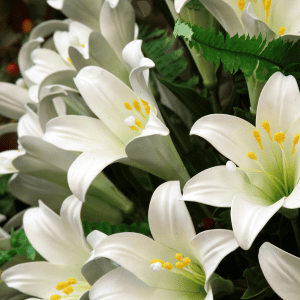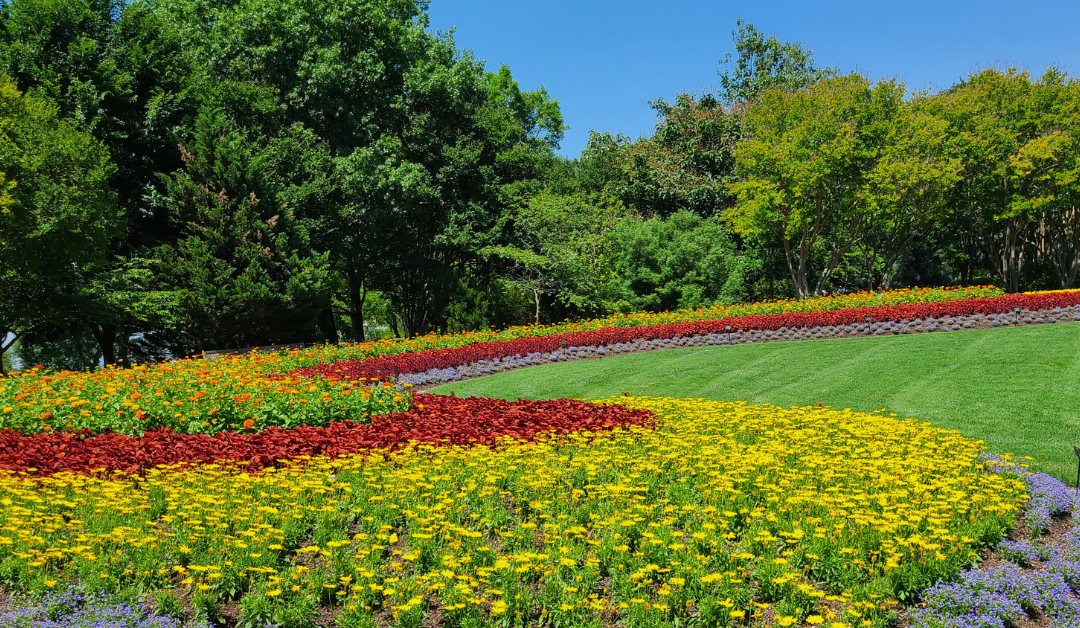Native Dallas Plants That Are Toxic to Cats and Dogs
 1. Lilies (Lilium species and Hemerocallis spp.)
1. Lilies (Lilium species and Hemerocallis spp.)
Though not all lilies are native to Texas, many varieties, including daylilies, often planted in Dallas-area gardens, can be fatal to cats. Even a small ingestion of petals, leaves, pollen, or water from a lily vase can lead to kidney failure in felines. Dogs are less sensitive but may still experience gastrointestinal upset. The ASPCA Animal Poison Control Center lists true lilies (Lilium spp.) and daylilies (Hemerocallis spp.) as extremely toxic to cats.
2. Carolina Jessamine (Gelsemium sempervirens)
This striking yellow-flowered vine is native to Texas and popular in landscaping. All parts of the plant contain toxic alkaloids that affect the nervous system. Ingesting even a small amount can cause muscle weakness, respiratory distress, and, in severe cases, death in both dogs and cats. Here, you can read more about its toxicity and how even children have been affected!
 3. Yaupon Holly (Ilex vomitoria)
3. Yaupon Holly (Ilex vomitoria)
While Yaupon Holly is a staple in native landscaping for its berries and evergreen leaves, its bright red berries contain saponins that can cause vomiting, diarrhea, and lethargy in pets. Though typically not fatal, the symptoms can be distressing. I mean, when the word “vomit” is in the name, it’s best to stay away!
 4. Milkweed (Asclepias spp.)
4. Milkweed (Asclepias spp.)
Crucial for monarch butterflies, milkweed is native to North Texas and increasingly planted in eco-conscious gardens because it has been listed as endangered, which affects butterfly and bee populations. However, its milky sap contains cardenolides (cardiac glycosides), which can cause nausea, irregular heartbeat, and even seizures in pets. If you want to support pollinators, plant this as far away from pet areas as possible!
5. Chinaberry (Melia azedarach)
Although Chinaberry is not a true native, it’s originally from Asia as the named suggests, it’s common in our region. Its berries are especially toxic and can cause vomiting, tremors, and respiratory failure when ingested.
Safe Alternatives to Native Dallas Plants That Are Toxic to Cats and Dogs
Some safe, pet-friendly native plant alternatives for the Dallas-Fort Worth area that are non-toxic to cats and dogs, while still supporting local biodiversity and Texas’ climate include the following. Of course, it’s always a good idea to check each plant species and strain before planting or bringing indoors, just in case!
 1. Texas Bluebonnet (Lupinus texensis)
1. Texas Bluebonnet (Lupinus texensis)
Our beloved state flower, the Texas Bluebonnet, blooms in spring with striking blue hues. It’s non-toxic to pets and attracts pollinators like bees and butterflies. While technically not listed as toxic by the ASPCA, ingestion of large quantities might cause mild stomach upset—so moderation is still best.
2. Blackfoot Daisy (Melampodium leucanthum)
A drought-tolerant ground cover with cheerful white blooms the Blackfoot Daisy thrives in full sun and less than ideal soil, making it perfect for low-maintenance gardens. It has no known toxicity for cats or dogs and, as a bonus, attracts native bees and butterflies.
 3. Purple Coneflower (Echinacea purpurea)
3. Purple Coneflower (Echinacea purpurea)
A hardy perennial, the Purple Coneflowers offers long-lasting purple-pink blooms and is excellent for pollinators. Echinacea is considered safe for pets and is even used in herbal remedies for both humans and animals.
4. Autumn Sage (Salvia greggii)
With bright red, pink, or coral flowers, Autumn Sage is beloved by hummingbirds and drought-tolerant gardeners alike. It’s non-toxic to cats and dogs and naturalized throughout the state.
5. Turk’s Cap (Malvaviscus arboreus var. drummondii)
A shade-tolerant shrub with bright red flowers, it supports hummingbirds and butterflies and tolerates heat and heavy soils common in North Texas. There are no reports of it being toxic to pets, making it a good option in Dallas.
Taking Precautions Around All Plants & Greenery
When in doubt, it’s best to err on the side of caution when it comes to pets and plants. Even with non-toxic plants, discourage pets from chewing on garden vegetation, potted plants, and other greenery. Large amounts of any plant matter can cause digestive upset. Plus, they could harm your beloved plant by chewing on it!

The Best Care for Dallas Pets
Park Cities Pet Sitter proudly provides cat sitting, dog sitting, and dog walking services in Bluffview, Deep Ellum, Downtown, Highland Park, Knox Henderson, Lake Highlands, Lakewood, Lower Greenville, Medical District, North Dallas, Oak Lawn, Northwest Dallas, Northeast Dallas, Old East Dallas, Preston Hollow, Turtle Creek, University Park, Victory Park.
To learn more about our services, please visit our FAQs and contact us at 214-828-0192 and pets@pcpsi.com. You may also register via our client portal here. Existing clients, please submit reservations via this link.
To joining our team as a pet care provider, please click here.
If you are outside our greater Dallas service area, visit Pet Sitters International and the National Association of Professional Pet Sitters to find a pet sitter near you.

